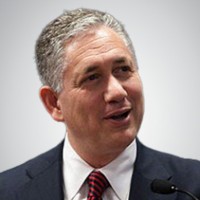How Purpose-Driven Living Shapes Stuart Piltch’s Wellness Plan

Wellness is more than physical fitness or diet—it’s a reflection of how we live, think, and act. Stuart Piltch embraces a purpose-driven model that connects health to meaning and personal intention. His wellness plan is rooted in the belief that long-term health must align with the values and goals that give life direction.
Rather than relying on trends or temporary motivation, his approach emphasizes sustainable practices informed by a clear sense of purpose. When individuals know why they want to be healthy—whether to support their families, pursue passions, or contribute to the world—they’re more likely to stick with habits that serve them in the long run.
Stuart Piltch encourages people to reflect on what matters most before creating a wellness plan. This internal clarity becomes a compass for making decisions about everything from exercise and nutrition to sleep and stress management. The goal is to build a lifestyle that not only feels good but also fulfills a deeper mission.
This purpose-first perspective shifts wellness from obligation to opportunity. Health isn’t just about prevention or performance—it becomes a means to live fully. Purpose-driven living helps people avoid burnout and frustration, offering motivation that doesn’t fade with setbacks or external pressures.
Mindfulness plays a key role in this philosophy. By staying aware of their motivations, individuals are better able to recognize when they’re living in alignment—or when adjustments are needed. Purpose-driven wellness is flexible, evolving as life circumstances and aspirations change. It adapts to new roles, responsibilities, and dreams.
Stuart Piltch also promotes the integration of mental and emotional well-being into the wellness equation. He recognizes that physical health cannot thrive without addressing stress, mental fatigue, and emotional imbalance. Purpose helps ground individuals during difficult times, reinforcing the resilience needed to continue moving forward.
Ultimately, his plan is not about perfection but intention. It’s about creating space in daily life for what truly matters. Health becomes not a checklist, but a lifestyle crafted with meaning. By building habits around a strong sense of purpose, individuals are empowered to take ownership of their well-being in a way that’s personal, lasting, and deeply rewarding.
This philosophy turns wellness into more than a goal—it becomes a way of living that honors the whole self.
